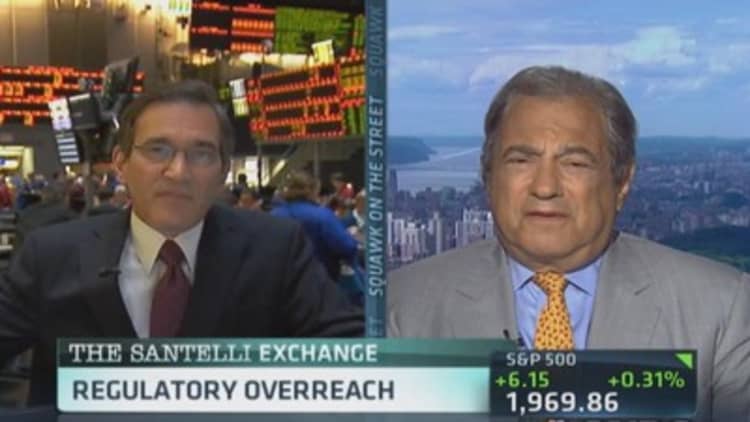Accounting giant Ernst & Young will pay $4 million to settle civil charges that it violated auditor independence rules after one of its units lobbied congressional staffers on behalf of audit clients, U.S. regulators said on Monday.
The Securities and Exchange Commission said the firm is settling the case without admitting or denying the charges.
A spokesman for Ernst & Young said on Monday that the firm is happy to put the matter behind it and that auditor independence is "of paramount importance."
"We regret these instances that arose many years ago," said John La Place. "In 2012, Ernst & Young voluntarily decided to cease performing lobbying work for SEC registrant audit clients."

SEC rules prohibit auditors from serving as "advocates" for audit clients because doing so may cloud their independence when they review companies' financial statements.
The auditor independence rules were beefed up more than a decade ago after the Enron-era accounting scandals.
"Auditor independence is critical to the integrity of the financial reporting process," said Scott Friestad, an associate director in the SEC's enforcement division.
Read MorePenny for your thoughts? SEC rules on small caps
"Ernst & Young engaged in lobbying activities that constituted improper advocacy and clearly violated the rules," he added.
The SEC's case comes after Reuters exclusively reported in 2012 that Ernst & Young's Washington, D.C.-based lobbying arm had been hired by several audit clients.
In that report, Reuters found that Ernst & Young's lobbying arm, known as Washington Council Ernst & Young, had ongoing lobbying contracts with companies it also audited.
Those companies included Amgen, CVS Caremark and Verizon Communications.
In addition, Reuters found that the unit previously had lobbying contracts with other companies including AT&T, Fortress Investment Group and Transocean which ended between 2006 and 2011.
Shortly after Reuters reported the story, Ernst & Young's lobbying unit severed its business relationship with the companies that still had outstanding contracts.
The SEC's case focuses on lobbying services provided to two audit clients but does not name the companies.
The agency said that prior to 2009, the firm sent letters to congressional staff on behalf of one of the companies, urging passage of a bill crucial to the company.
Read MoreSEC halts trading in mystery stock CYNK
For the other company, the SEC said, Washington Council Ernst & Young sought to persuade members of Congress to withdraw their support for a bill that hurt the client's interests.
—By Reuters

